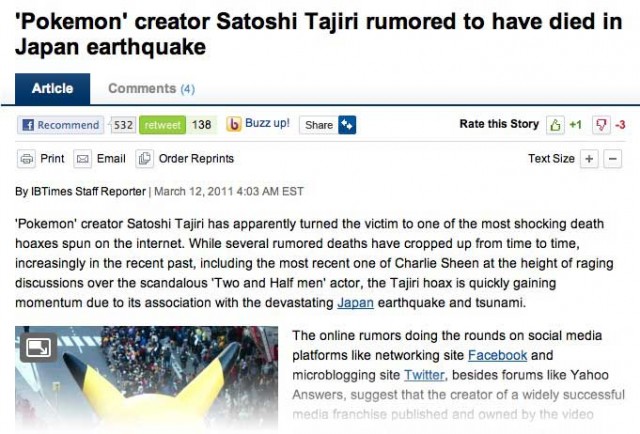- All right, everyone, here’s where we’re at. Radiation has leaked from the Fukushima nuclear power plant in Japan. This is bad. However, it’s apparently not as bad as it could be, because the reactor core container itself wasn’t damaged. Furthermore, the mist hovering above the plant implies that radiation levels are low-ish. Officials are ranking it as less serious than both the Three Mile Island meltdown and the Chernobyl disaster. Nuclear meltdowns are ranked on a scale of 1-7; Three Mile Island was a 5, Chernobyl was a 7, and this one is currently being pegged as a 4. However, they’re nevertheless distributing iodine to the locals, which helps prevent the thyroid cancer that can result from radiation exposure. We’ll keep you posted as more news comes. source
